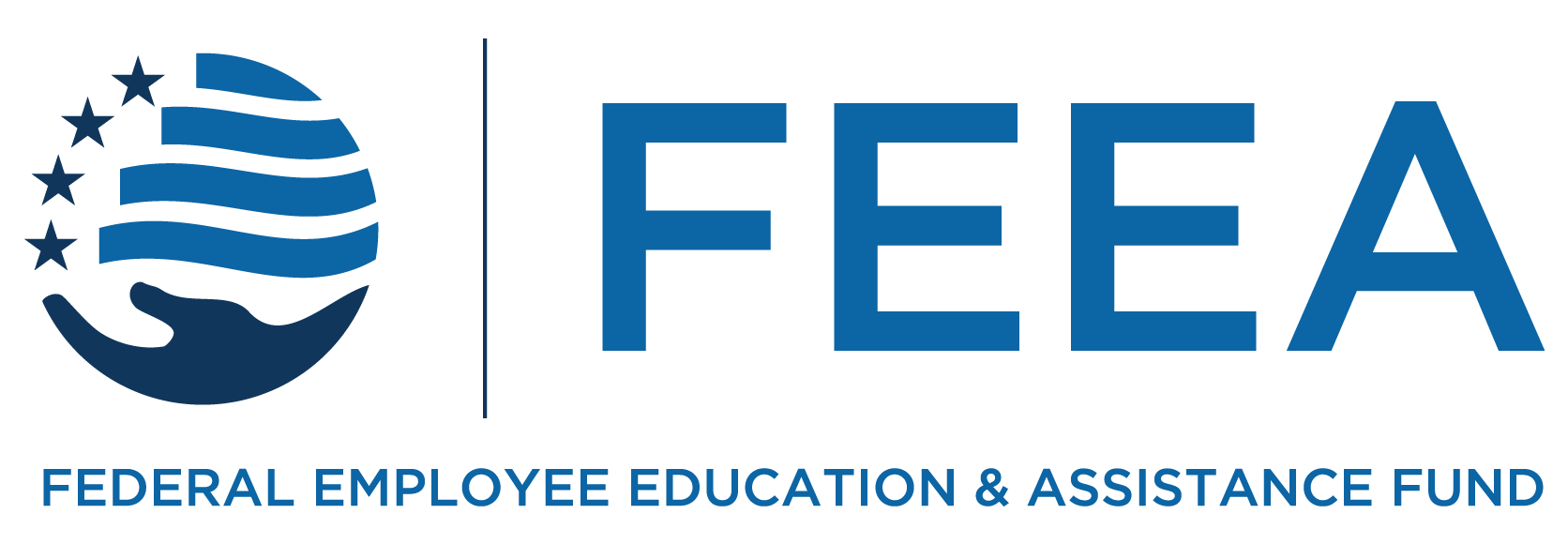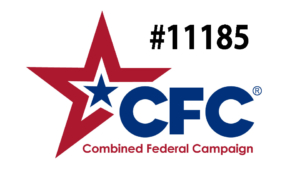by Joyce Warner and Mark Duchene
FEDLIFEHACKS 5 Types of Insurance You Might Not Know About
[Video Start]
[Video presented with written slides in English]
[music]
[FEEA #FEDLIFEHACKS logo with a light bulb at the top encased by a blue box.]
5 Types of Insurance You Might Not Know About
[An image of packed moving boxes in an empty house.]
1. Renter’s Insurance
This insurance protects you and your possessions when renting a home.
Your landlord is responsible for insuring your building, but your activities and possessions are not covered.
[An image of two individuals in wet boots standing in water in the house.]
2. Flood Insurance
Floods are among the most common natural disasters and can cause extensive damage.
You must obtain flood insurance if you own a home in a flood zone. If you live near a flood zone, this insurance should still be considered.
[an image of a Caucasian man smiling while he hugs his dog.]
3.Pet Insurance
Talk to your veterinarian to understand what is covered, copays, deductibles, and how claims are handled
Check out the North American Pet Health Insurance Association for a list of insurers.
[An image of a group of black umbrellas with a single red umbrella open while it rains
4. Umbrella Insurance
What happens if you are sued for causing a major injury or property damage to someone? Is your current insurance coverage enough?
Also called “excess liability coverage,” even if you are found not liable, you can have substantial legal fees, which umbrella insurance can cover.
[An image of an American flag in front of a government building]
5. Federal Employee Professional Liability Insurance
As a federal employee, this insurance can protect you against baseless discrimination, harassment, or retaliation accusations, and can help with legal fees, in the event of a lawsuit.
for more information on this topic, visit feea.org/hacks
[STARR WRIGHT USA Logo.]
FEEA thanks STARR WRIGHT USA for contributing to our #FedLifeHacks program
[FEEA #FEDLIFEHACKS logo with a light bulb at the top encased by a blue box.]
[music]
[Video End]
Insurance: coverage by contract whereby one party undertakes to indemnify or guarantee another against loss by a specified contingency or peril (Merriam-Webster Dictionary).
Most people have heard of the most talked about types of property and liability insurance, for example auto or home. In this piece, we are sharing some information about five other types of insurance you may not have heard about.
Reviewing your insurance needs, say once a year in light of your current circumstances, is an important part of protecting the assets you have worked hard to earn and save. Only you can decide what mix of insurance is right for you and what your tolerance is for risks you might have to fund out of pocket.
RENTER’S INSURANCE
Renter’s insurance protects you and your possessions when you are renting a home (apartment, house, mobile home) from a company or individual. It often includes liability, personal property, and additional living expenses if your rental is uninhabitable.
Many large rental companies require renter’s insurance, but even if your landlord doesn’t require it as part of your leaseyou should make an informed decision about whether or not you need it and whether you want to bear the risk.
According to the Harvard Joint Center for Housing Studies, nearly 43 million US households rent their homes. But, the Insurance Information Institute says only about a third of renters have insurance.
While your landlord is responsible for insuring your building, your possessions and your activities are not covered. This means if a flood, fire, or other disaster damages your possessions, your landlord’s insurance will not pay to replace them.
Policy costs are generally affordable, but may vary based on where you live – a busy city neighborhood versus suburbia. Another factor to consider when buying Renters Insurance is whether it’s Actual Value Coverage or Replacement Value Coverage. With Actual Value,the item cost is depreciated and insurance will only pay the estimated value of the item before it was damaged or destroyed, while Replacement Value covers the cost you pay to replace the item. This can also have an impact on rates.
FLOOD INSURANCE
If you are a homeowner in a flood zone, you are federally mandated to obtain flood insurance. But, what if you live neara flood zone? What are the options for those required to have flood insurance and those who decide it is a smartprecautionary measure?
Floods are among the most common natural disasters. Flood damage can be expensive, from structural damage to possible mold infestation. Most homeowner’s policies exclude flood damage.
The majority of flood policies are obtained through the National Flood Insurance Program. A local insurance agent that provides flood policies can help you apply. Flood policies take 30 days to take effect, so it is important to plan ahead.
Some people make the mistake of thinking that in the event of a flood, Federal Emergency Management Agency (FEMA) grants are sufficient. But, those grants only pay up to a maximum of $33,000 for help with temporary housing, medical services, and other flood-related expenses. Flood insurance covers homes up to $250,000 and possessions for $100,000.
Some insurance companies are offering “private flood insurance.” If you want coverage over $250,000 or live near but outside a flood zone, ask your agent about the alternatives available to you.
According to an interview on CNBC with FEMA’s deputy associate administrator for insurance and mitigation David Maurstad, “Just one inch of floodwater in a home can cause $25,000 worth of damage. People think their homeowner policy may cover them from flooding, but it doesn’t.”
PET INSURANCE
We love our pets, and many pet owners think of them as a family. But, when it comes to their healthcare issues do we think of them the same way as the rest of the family or ourselves?
Pet ownership can be expensive. The American Pet Products Association, a trade group, estimates that Americans will spend nearly $70 billion on their pets this year, with nearly a quarter of that devoted to veterinary care.
Some dedicated pet owners buy pet insurance. According to the North American Pet Health Insurance Association (NAPHIA), more than two million pets in the US and Canada are currently insured. But, that is only a small percent of the nation’s nearly 90 million pet dogs and more than 94 million pet cats.
NAPHIA says the three main types of pet health insurance are: (1) Accident coverage for veterinary treatment for unexpected injuries, (2) Accident & Illness coverage to treat both accidents, as well as sickness, disease or any changes to your pet’s normal healthy state, (3) Wellness (also called Routine or Preventive Care) which may include vaccinations, tests, and dental work.
If your pet has a pre-existing condition, it is not covered. There may also be restrictions on coverage for conditions that are common in certain dog breeds. If you wait until your pet is sick or injured, it is too late to get insurance.
The American Veterinary Medicine Association suggests pet owners talk to their veterinarian and research their options. Be sure to understand what is coveredand what is not as well as copays, deductibles, and how claims are handled.
UMBRELLA INSURANCE
Accidents happen. That’s why we buy insurance. But, is your current homeowners, auto, or business insurance coverage enough? What happens if you are suedif you accidentally cause a major injury or property damage to someone – and the damages exceed the amount of your policy’s liability coverage?
That’s why some people purchase “umbrella insurance” – also called “excess liability coverage.” Even if you are sued and found not liable, you can have substantial legal fees, which umbrella insurance can cover.
Are you a property owner or landlord or on a condo board, have substantial assets, own a pool or a dog, coach youth sports, volunteer, participate in possible injury-causing sports like hunting, or enjoy posting online business reviews? Then you may want to consider umbrella insurance – and these are only some of the situations where umbrella coverage is a good choice.
A lawsuit could potentially cause you to lose your savings, your property, and future earnings – or leave you in debt for years to pay for it. If a settlement in a lawsuit exceeds your umbrella insurance coverage limit, you are responsible for paying the balance.
Most insurance carriers sell umbrella insurance starting at $1 million in coverage and then increasing in million-dollar increments. To qualify for umbrella insurance, you must have enough car and property coverage limits required by the insurance company (as explained by NerdWallet). This coverage is usually quite affordable and provides coverage above the underlying limits of liability on your core insurance policies, including automobile and homeowners.
FEDERAL EMPLOYEE PROFESSIONAL LIABILITY
We live in a litigious society. Federal employees are subject to the same potential legal vulnerability as in those who work in the private sector.
“Many federal employees decide to get professional liability insurance protection just like other professionals do in medicine, financial services, contracting, and more. You need protection because even frivolous complaints can damage your reputation and your finances,” says Darrell Weber, assistant vice president of Starr Wright USA, which specializes in providing professional liability insurance for federal employees.
Federal Employee Professional Liability Insurance (FEPLI) can protect you against baseless discrimination, harassment, or retaliation accusations. Even if an allegation is proven false or you are sued and win, you can still face overwhelming legal fees without FEPLI protection.
Coverage is available for current federal employees including new hires. The coverage provides assistance fromexperienced attorneys who specialize in working with federal employees who guide you through the legal process from beginning to end.
This program is typically a good value providing solid protection at an affordable rate. Additionally, Congress has regulated that Federal Agencies reimburse qualified employees up to 50% of the premium.
Some companies also provide coverage for federal contractorsand former federal employees who provide services on a consultative/contract basis. This coverage is also called “Errors and Omissions (E&O) Insurance.” Most government consultants and contractors are required to have professional liability coverage.
It protects against allegations of wrongful acts, errors, or omissions committed while performing duties for which you were contracted. Without this coverage, you can be liable for financial judgmentsmade against you.
Whenever you shop for insurance it’s a good idea to get multiple bids and make sure to read the policies carefully to understand limits, deductibles, and any exclusions.
Subscribe to FEEA’s Newsletter
FEEA THANKS STARR WRIGHT USA FOR CONTRIBUTING TO OUR #FEDLIFEHACKS PROGRAM
The information provided in this piece is for your convenience and informational purposes only and not to be construed as professional advice. FEEA and its coauthors and sponsors are not liable for any losses or damages related to actions or failure to act with regard to the content in this piece.
Would you like to reprint this piece in your agency human resource, federal employee association, or union local newsletter? You can do so at no cost by contacting admin@feea.org with your request.














